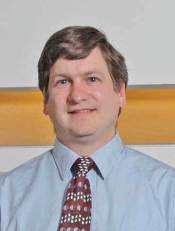MPEL Seminar
Tracing the Solutions to the Power Flow and Optimal Power Problems
Add to Google Calendar

In this seminar I will report on our research group's efforts to determine all the solutions to the fundamental power flow problem and our extension to finding multiple critical points (including the global optimum) for the optimal power flow problem (OPF).
The traditional power flow problem computes network voltages consistent with a specified pattern of power injections, and it is known to exhibit multiple solutions. We review past work on determining bounds on the number of solutions and methods for computing all the solutions. Remarkably, it has been noted that the number of possible solutions in practice is very small compared the theoretical bounds reported in the literature. In our approach, we transform the power flow equations to take a bounded elliptical form and employ a particular tracing method to move from one solution to another. We are able to find all solutions for those cases for which all solutions are known.
We extend our method to the optimal power flow problem by constructing an elliptical representation of sphere-constrained Fritz John conditions, and similarly trace between solutions which represent critical points of the OPF. We show that this method can trace between parts of a disjoint feasible space and we demonstrate that it can find the global optimum for some difficult cases when the SDP relaxation fails. I will also discuss application of this method to general quadratically constrained quadratic programs (QCQP).
Bernie Lesieutre is a professor of Electrical Engineering at the University of Wisconsin-Madison. He received his B.S., M.S., and Ph.D. degrees from the University of Illinois at Urbana-Champaign some decades ago. He has held academic positions at MIT, Caltech, and Cornell, and has a research appointment at Lawrence Berkeley National Laboratory. His research interests involve the monitoring, modeling, and analysis of the electric power grid with a view towards ensuring reliability. Much of his recent research involves the dynamic modeling of power plants and loads, and advancements in optimization tools for evaluating optimal power flow.
 MENU
MENU 
